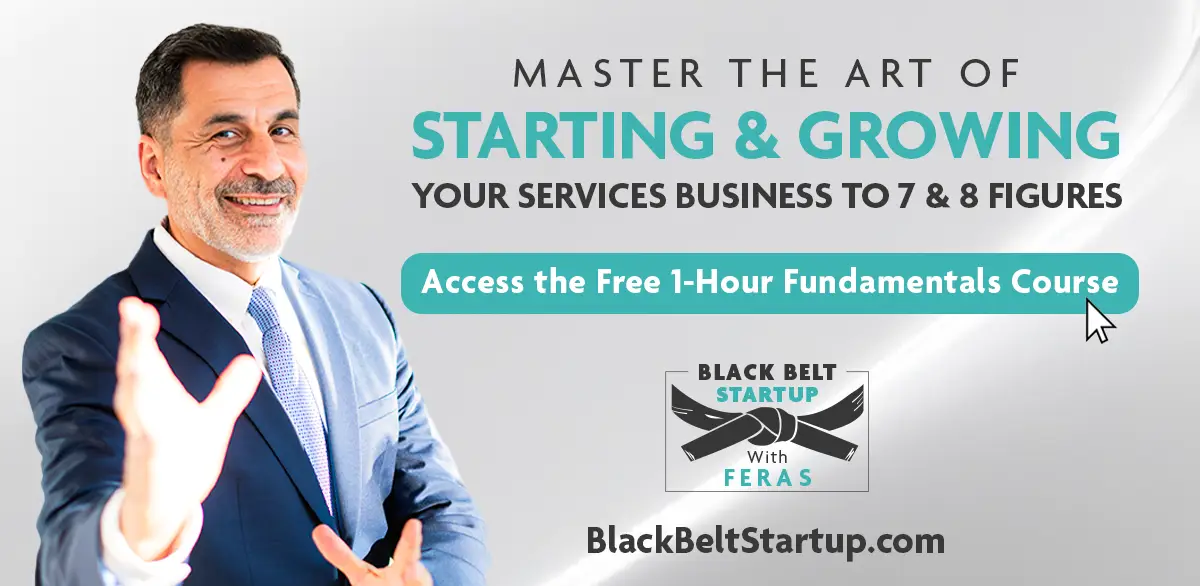9 Tips for Gen-Z Graduates to Break Into the Workforce (and Prove the Stereotypes Wrong)

I recently came across two stats that surprised me quite a bit.
The first states that 52 percent of graduates are underemployed a year after graduation, and the other states that 12.3 percent of recent college grads are fully unemployed.
Though the Bureau of Labor Statistics (the second source) doesn’t readily define recent, both of these figures point quite conclusively to the challenging job market that graduates are encountering.
But these challenges are not completely new. While the workplace that graduates try to enter has undergone so many changes in recent years, the hurdles are similar and certainly remind me of the struggles that I faced after I graduated (way back when 🙂).
As my graduation with a major in electrical engineering and a minor in computer science approached, I had the gullibility to believe that right after graduating, job opportunities would be lined up for me and that within a few weeks, I’d be working with a nice salary, benefits, vacation, and other corporate perks.
Then reality hit hard. I sent out many resumes for a couple of months but only got one interview, and sadly, that didn’t go anywhere.
After a very tough stretch (that actually included owning and running a restaurant – I’ll share that story another time), I received a call from a friend about a job at Home Shopping Network in Florida, which I enthusiastically took right away. I had finally broken into the job market, I thought to myself!
I find it troubling that college students work so hard to graduate but struggle to land jobs in their fields. So, I’ve made a commitment to helping college graduates kick off their careers stronger than I did.
Watch the live stream where I cover this topic in depth:
As I find myself speaking with younger folks and providing them with career advice week in and week out, here are some of the main points that I share:
1. Build on the entrepreneurial spirit of your generation and those before you
According to Harvard Business Review, at least 17% of US undergraduate and graduate students operate their own businesses, and another 16% plan to start one after graduation. Globally, 32% expressed interest in transitioning into entrepreneurship within five years of their graduation.
If entrepreneurship is something you want to pursue, go for it. As an additional motivation, consider that 38% of employers avoid hiring recent college graduates.
Don’t think you’re too young to start a business. Many young entrepreneurs made a huge difference (not only in Silicon Valley where I live) but throughout the United States and the world. Remember that Fred DeLuca opened the first Subway restaurant at age 17.
If you had to side-hustle while you’re studying. In those side gigs, you were solving a problem for someone. This is what business is all about: solving real problems and offering solutions that strangers will be happy to give you money for.
But know that there are no shortcuts to success. Get-rich-quick schemes are indeed schemes. Approach entrepreneurship with a mindset of hard work, ongoing learning, and progress, not with fantasies of easy money.
As a side note here: 2 of our 3 recent hires at Start Up With Feras were recent graduates, and they’re amazing. You just have to find the right talent and nurture it.
2. Don’t allow anyone, not even generational theorists, to assign a label to you
You’re a Gen Zer and thus you’re expected to do this and not do that. Don’t look at averages and generational trends; you’re not average and not a data point in a trend. Be you and do you!
Yes, every generation has its unique circumstances. External factors influence us and our environment but know that the foundation of success hasn’t changed much over time.
Skills, hard work, and a strong mindset remain the core ingredients for success in life and in business.
Learn what will put you in a better position to get a job or even start your own business, and be ready to change and adapt.
3. Work-life balance is a myth
Don’t fall for these fancy slogans. There’s no balance in life; it’s all about managing the imbalance. There are seasons in life when you have fewer obligations and more time; invest this time wisely in professional development.
If you side-hustle, don’t do it for a few dollars here and there. Instead, side hustle to learn a new skill that will catapult your career or validate an idea for your own business.
4. The economy could be the best or worst ever
Depending on what side of the political aisle you listen to, the economy could be the best or worst ever. A recession could be looming, or we could be entering a period of high growth.
Don’t let these differing interpretations influence your plans to find a new job or start your own business.
5. Keep ahead of technology and trends
The main edge in employability and entrepreneurship has long been an understanding of trends and emerging technologies.
We’re at an inflection point with AI. It’s shaping up to be the trend and technology of our age. Embrace it and learn it. Even if you’re not technical, find ways to incorporate AI skills into your workflows.
Here’s an incentive: wages for AI-related roles were, on average, 25% higher in the United States than for comparable jobs in the same field that did not require those skills.
6. You can’t expect your work to immediately align with your purpose, but you can build your own business around your values
It’s inspiring that many graduates are looking for a job that aligns with their values. According to research by Deloitte), 86% of Gen Z say having a sense of purpose is important for their job satisfaction.
If, however, the purpose is at the top of your requirements list for a job, many hiring managers might not understand where you are coming from.
My suggestion is not to walk away from opportunities that don’t align exactly with your values. Very few things in life are black and white. Assess all aspects of any professional opening that is in front of you.
Don’t expect an employer to make a great effort to align with your values. Have high expectations of yourself, but don’t expect too much from others.
If, on the other hand, you’re starting your own business, you can make it as purpose-driven as you want. You can establish the culture you want, uphold the values that are most important to you, and serve the purpose that inspires you.
I remember that when my partner and I started our very first business in web design and online marketing, we decided to avoid clients in a few industries, including adult, tobacco, and a few others. That was important to my co-founder and me. Throughout the various businesses I built, we had a similar list of no-nos. We walked away from $100,000 contracts and never regretted it a bit.
7. Many people are ready to help
Narcissists and egoistic people aside (and they are a minority), most successful people acknowledge that they didn’t make it to the top without the help of many, many other people.
And I can tell you with certainty that they love nothing more than helping the younger generations of entrepreneurs and those seeking career advice.
Reach out, even if it feels awkward. Don’t hesitate. Use LinkedIn and other professional platforms. Attend local conferences and networking events. Tell people what you’re trying to accomplish.
Also, fight the nervousness around meeting people in person. Yes, network in person. Attend a local business conference. You’re likely to be the youngest person at that conference, but that means that you’ll stand out (in a good way). You’re not competing with 100 resumes over email; you’re making real connections with potential employers or business partners.
Leverage your network. Anyone whom you left a positive impression with, reach out to them.
Whatever help you need, including emotional support, there are mentors out there who are ready to help. You just have to reach out.
8. Financial illiteracy could be devastating
39-50% of the population in developed countries haven’t attained financial literacy, with women coming in 8 percentage points lower than men.
While these statistics vary across different segments of society, the broad need for greater familiarity with financial concepts is clear.
We’re constantly bombarded with marketing and social messages to spend more and acquire more. Financial literacy and strong financial habits will build your resistance muscle against the constant urge to buy and consume more.
Without financial literacy, you’ll be much more likely to squander your earnings and get into debt. And if you’re inclined to take the route of entrepreneurship, you’ll certainly have a harder time starting and managing a successful business.
9. Do something to help others
I got the volunteering bug early on in my life – in my college days.
My volunteering efforts, and whatever impact I’ve been fortunate to be able to make through them, have been as rewarding as my personal and business achievements.
There’s something very special about helping others and supporting a cause. The reward is far greater to the giver than to the receiver.
Remember the wisdom of Ralph Wald Emerson in this regard:
“The purpose of life is not to be happy. It is to be useful, to be honorable, to be compassionate, to have it make some difference that you have lived and lived well.”
With this, I send my best wishes for a life of purpose, impact, and fulfillment to all recent graduates.




